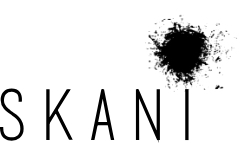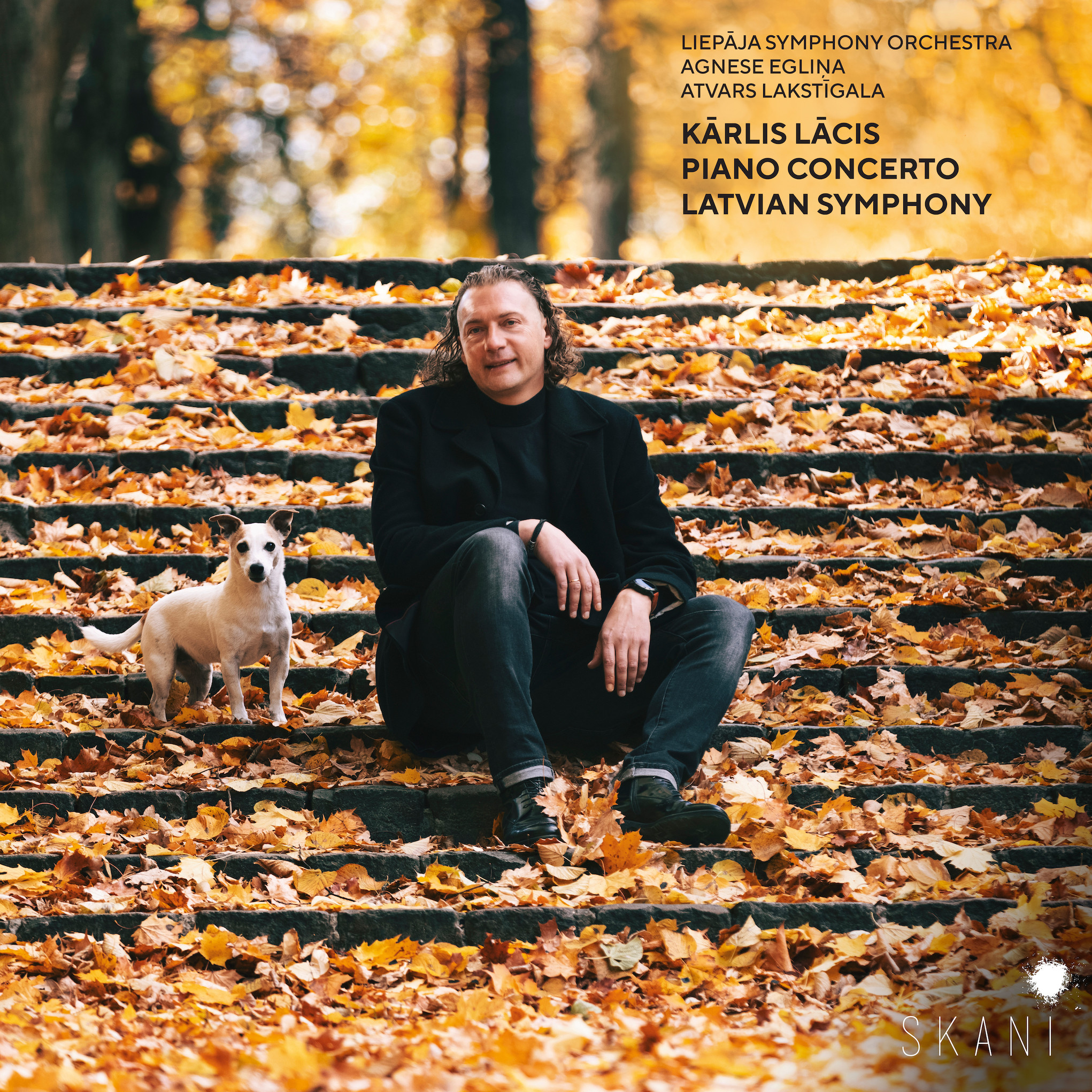Latvian composer Kārlis Lācis has become known for his skills in many musical genres – choral music, children’s music, theater and film music, and for his songwriting, which combines elements of popular music and jazz music. He has worked with such well known Latvian singers as Intars Busulis and Aija Andrejeva, and has won many awards for his work. He is also well known for his songs with words by Latvian poet Imants Ziedonis – such as the collections Ziedonis. Lācis. Sievietes. and the corresponding Ziedonis. Lācis. Vīrieši.
Lācis has also composed in the sphere of symphonic music. Recognizing his contributions to the field of Latvian symphonic music, the Latvian national record label Skani released an album of two of Lācis’ major symphonic works – his Piano Concerto and also his Latvian Symphony. The works were recorded by the Liepāja Symphony Orchestra and conductor Atvars Lakstīgala, and the album was released in 2022.
Featuring pianist Agnese Egliņa, the Piano Concerto is a work in four movements. The first movement begins in dramatic fashion, with loud, crashing flourishes in the orchestra, which then alternate with an energetic, quietly manic piano melody from Egliņa. This almost nervous energy is sustained, and even builds, all the way through to the end of the first movement. After that heart-pounding movement, there is an almost jarring change to the slower, more lyrical second movement – subtitled ‘Krustceles’ (or ‘Crossroad’), and perhaps that title helps explain the contemplative nature of the movement – which path now to follow? Egliņa’s tender performance enhances this movement’s dreamy quality.
Another major tonal change comes in the third movement, subtitled ‘Izmisums’ (or ‘Despair’), and the subtitle provides an indication of the dark atmosphere to come. Lācis has the orchestra begin the movement with rhythmic clapping which then leads to ominous music in the brass section. The orchestra also provides vocal effects throughout, and there is a crescendo to near shouting near the end. The movement hurtles along, perhaps to reflect a soul reaching a breaking point. After the tumult, the fourth and final movement, subtitled ‘Šūpļa dziesma’ (or ‘Lullaby’) provides a soothing antidote to the torment of the previous movement. It is not a traditional lullaby, as there are still moments of energy and soaring orchestral grandeur, as well as some jazz-like elements that Lācis is known for. The work only becomes a true lullaby at the very end, where Lācis quotes the Latvian folk song / lullaby ‘Velc, pelīte, saldu miegu’, which brings the Concerto to a calming, reflective conclusion.
Lācis’ ‘Latvju simfonija’ (Latvian Symphony) also finds inspiration in Latvian folk songs and folk dances, and features accordionist Artūrs Noviks. The first movement (subtitled ‘Tumša nakte’ or ‘Dark Night’) is periodically stormy, periodically calm, and full of dramatism (Lācis mentions his fondness for Tchaikovsky in an interview contained in the CD booklet, and one can hear elements of the 19th century Russian composer throughout). The first movement concludes with Noviks’ accordion, playing a rising melody which then seems to dissipate into the ether.
The second movement is dreamy, almost mystical, and is subtitled ‘Ezers’ (or ‘Lake’), perhaps meant to represent some enchanted Latvian lake. The playful third movement – ‘Latvian scherzo’ – has a plethora of folk song quotes and allusions and is a kind of celebration of Latvian culture. The final movement – ‘Tec, saulīte, tecēdama’ (Hurry, Dear Sun) provides for a majestic conclusion. Finding inspiration in a mournful orphan’s song, this movement shifts between quiet, melancholic melodies and bursts of discordant sounds, and concludes with the orchestra quietly humming the folk song.
The CD booklet contains an interview with the composer, where Lācis discusses his many influences, how the time he spent in Thailand influenced his music and includes some humorous details about how Lācis was inspired to compose the Piano Concerto after an unsuccessful performance in the Eurovision song contest.
Full of dramatic moments, soaring melodies, and combinations of styles and sounds – from Latvian folk songs to Romantic era music to modern jazz – the orchestral works of Kārlis Lācis are vivid and lustrous. In the hands of skilled performers like the Liepāja Symphony Orchestra and conductor Atvars Lakstīgala, as well as pianist Agnese Egliņa and accordionist Artūrs Noviks, Lācis’ compositions are given an additional richness and breadth. Both works are deeply personal, and, with their multiple references to Latvian folk songs, also reveal the influence of Latvian culture in his music. Lācis’ Piano Concerto and Latvian Symphony are singular achievements and are two worthy additions to the catalog of Latvian symphonic music.
Egils Kaljo
www.latviansonline.com 06/01/2023
_______________________
Kārlis Lācis chucs everything bar the kitchen sing into his orchestral scores - including a prepared piano in the third movement of the Piano Concerto. His Latvian Sypmhony is equally extravagant, not to mention eclectic in style, but also quite fun.
★★★
(JP)
BBC Music Magazine
_______________________
In his native Latvia, Kārlis Lācis (born 1977) is considered one of the great composers of the current music scene. His creative spectrum is broad and serves many genres - from theatre, film, choral and chamber music to the "great" symphony. His 2019 "Latvju simfonija" (Latvian Symphony) is heard here for the first time on a CD. The same applies to the Piano Concerto No. 1 from 2013. According to Wikipedia, Lācis' discography is more extensive, but only this one Skani CD is really tangible from him. At this point, we must expressly praise the Latvian label for pursuing its goal of offering a recording "stage" (almost) exclusively to local composers and thereby making them internationally famous(er) so consistently and in such an exemplary manner. This recording fits seamlessly into the list of exciting productions "Made in Latvia". The loud, sometimes downright noisy piano concerto becomes the beacon of the album - a joyfully syncretic youth work that draws on many sources (jazz, minimalism, club music, etc.). The third movement, entitled "Izmisums" (Despair), is scored polyrhythmically and forces the - fantastically playing! - With its frenetic energy, it forces the soloist to virtually smash her instrument at the end. More moderate in tone, but no less skilfully striking, is the "Latvian Symphony" with its four programmatic movements "The Night is Dark", "The Lake", "Latvian Scherzo" and "Hurry, Dear Sun". The Liepāja Symphony Orchestra, which recorded the works in "its" spectacular concert hall "Great Amber", is fully in "its" Latvian element.
Music: ★★★★
Sound: ★★★★★
Burkhard Schäfer
FONO FORUM, 07 / 2022

